To enhance social governance and service capabilities and promote the high-quality development of social work, the academic seminar on "Modernization of National Governance and High-Quality Development of Social Work in the New Era" was held in Beijing on April 21, jointly hosted by the Institute of Urban Governance at Peking University and the School of Government at Shenzhen University. The seminar brought together over 40 experts and scholars from nearly 20 institutions, including the Chinese Academy of Social Sciences, Peking University, Tsinghua University, Renmin University of China, Nanjing University, Nankai University, and Shenzhen University, to discuss the opportunities and challenges in social governance and the high-quality development of social work under new institutional frameworks and conditions.
I. Opening Ceremony and Keynote Speeches
(I) Opening Ceremony
The opening ceremony was chaired by Professor Chen Wen, Party Secretary of the School of Government at Shenzhen University. In his opening remarks, Professor Li Yonghua, Vice President of Shenzhen University and Director of the Research Center for theDevelopment of Disabled Persons in the Pilot Demonstration Area of Socialism with Chinese Characteristics, emphasized that as a core city in the Guangdong-Hong Kong-Macao Greater Bay Area and a pilot demonstration area of socialism with Chinese characteristics, Shenzhen has a pioneering mission in promoting the innovation and professionalization of social work and strengthening social governance in megacities. He pointed out that enhancing the quality and professional level of social work services in the new era is a common concern of the academic community. Professor Yu Keping, Dean of the School of Government at Shenzhen University and Director of the Institute of Urban Governance at Peking University, highlighted the significance of the seminar and encouraged in-depth exchanges and consensus-building among scholars to contribute to the modernization of national governance and the high-quality development of social work.
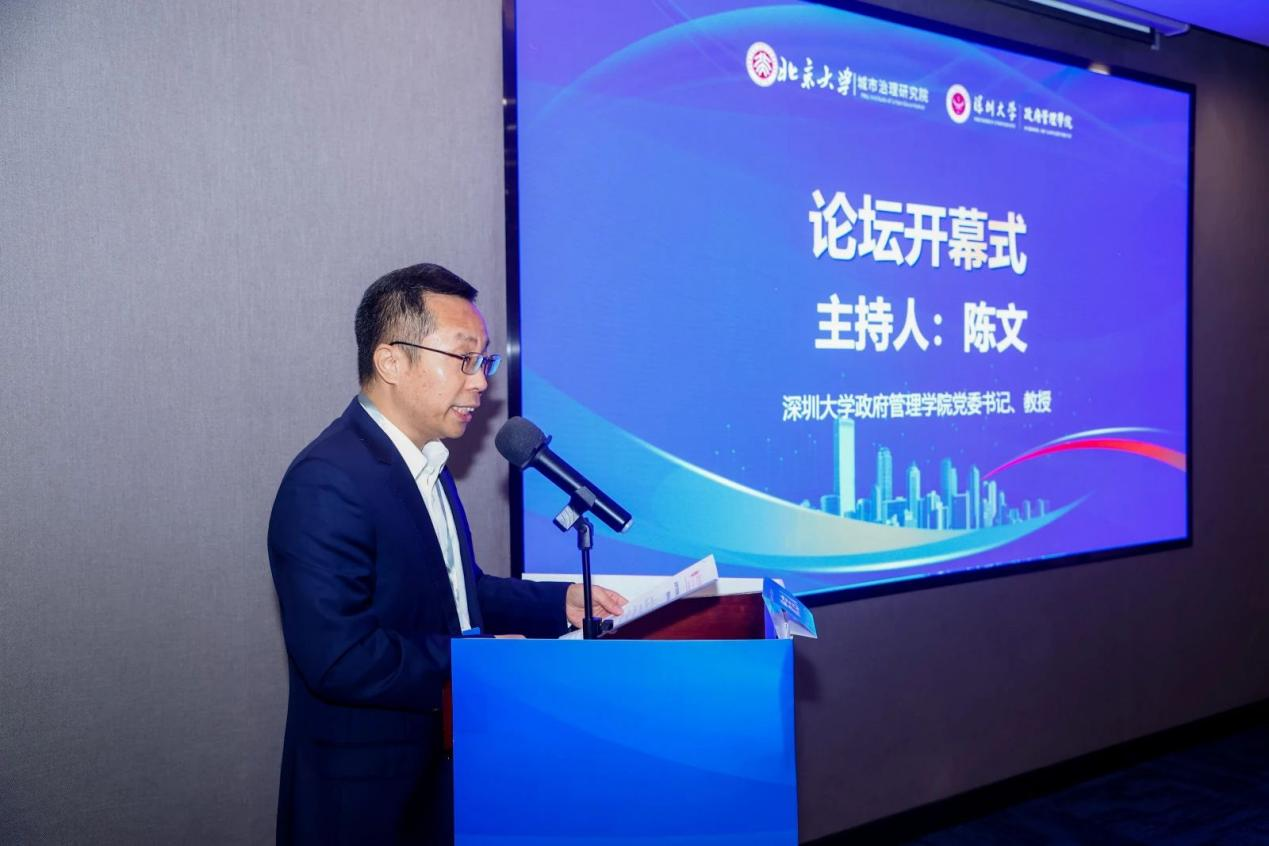
Professor Chenwen
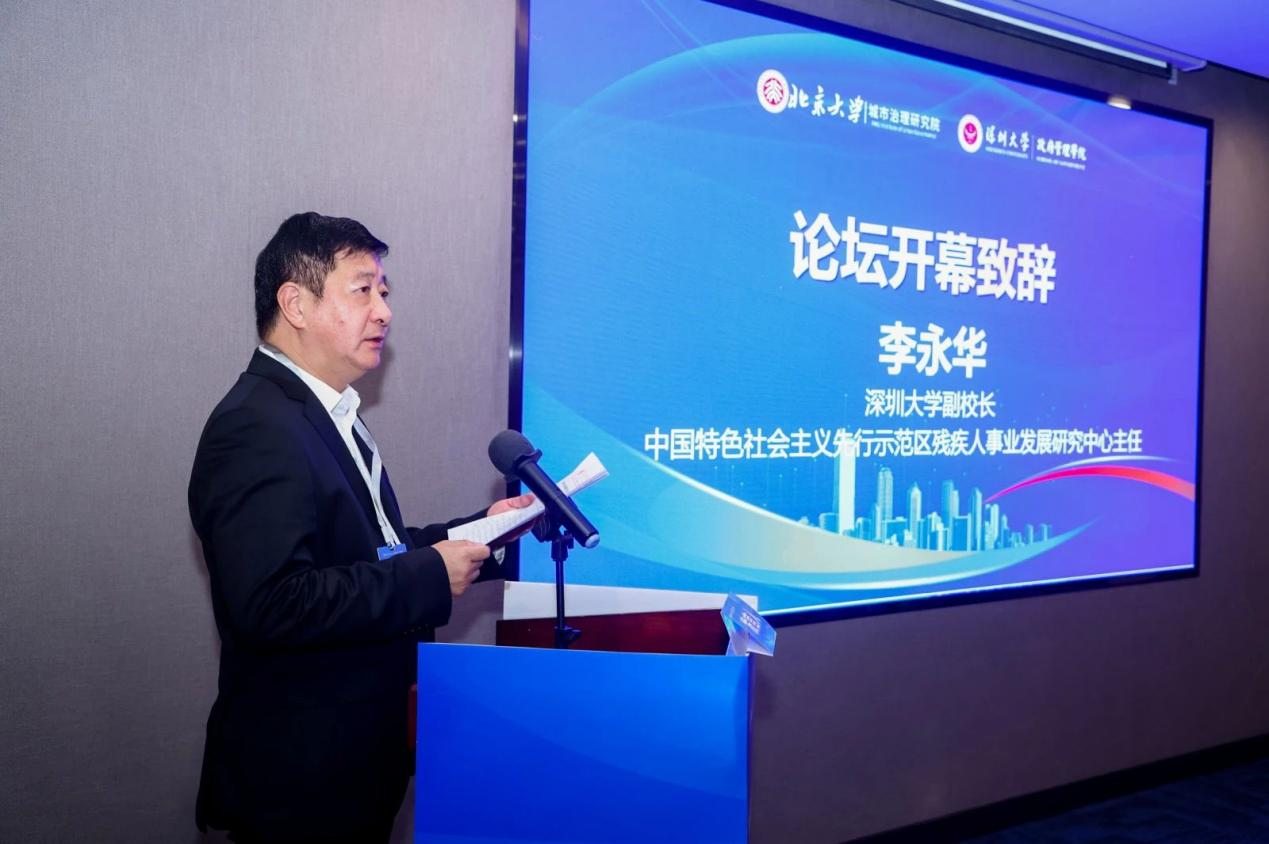
Professor Li Yonghua

Professor Yu Keping
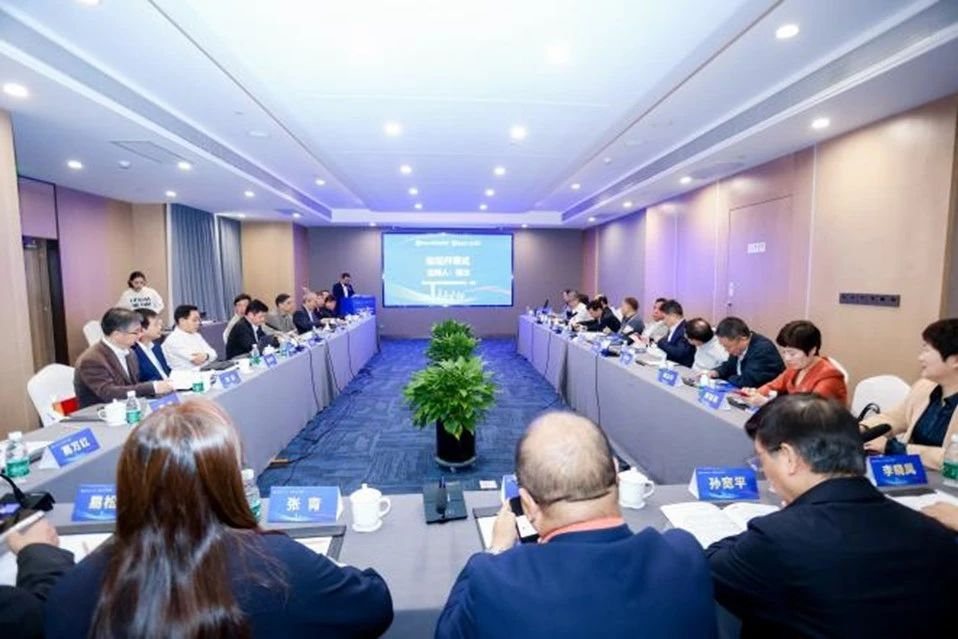
Opening Ceremony
(II) First Keynote Session
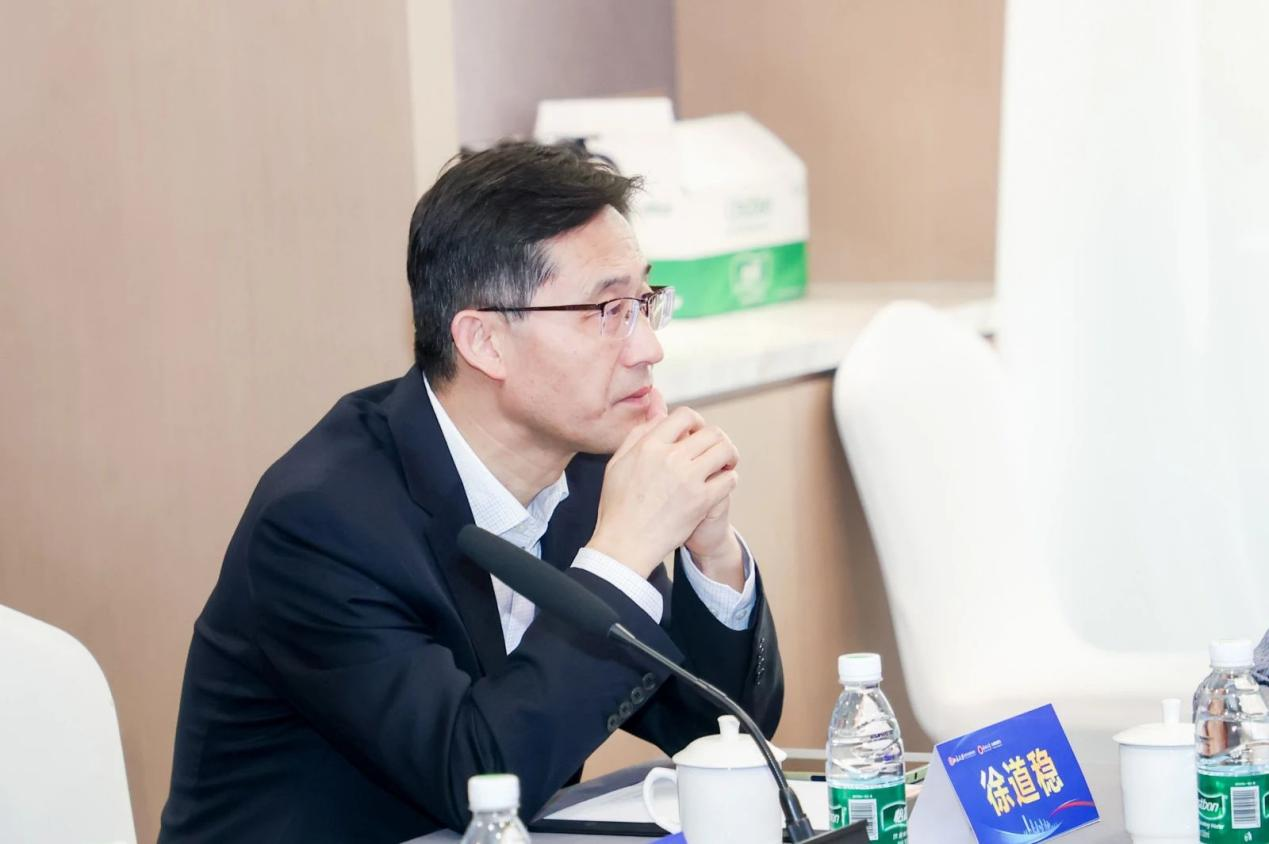
Professor Xu Daowen
The main forum in the morning featured two keynote speeches. The first keynote session in the morning was hosted by Professor Xu Daowen, Vice President of the China Social Work Society and Director of the Shenzhen University China Social Work Practice Innovation Research Center. The speakers included Li Peilin, Chairman of the Academic Committee of the Chinese Sociological Association, Member of the Chinese Academy of Social Sciences, Director of the Department of Sociology, Politics and Law, and former Vice President of the Chinese Academy of Social Sciences; Wang Sibin, Honorary President of the China Social Work Education Association, President of the China Social Work Society, and Professor in the Department of Sociology at Peking University; Zhang Yi, President of the Chinese Sociological Association and Director of the Institute for Strategic Development at the Chinese Academy of Social Sciences; Ma Fengzhi, President of the China Social Work Education Association and Professor in the Department of Sociology at Peking University; and Feng Shizheng, Member of the Standing Committee of the Party Committee and Vice President of Renmin University of China, and Vice President of the Chinese Sociological Association. The five experts shared their latest research on topics such as community governance, developmental governance, the modernization of national governance, the development of social work disciplines, and the localization of sociology in China.
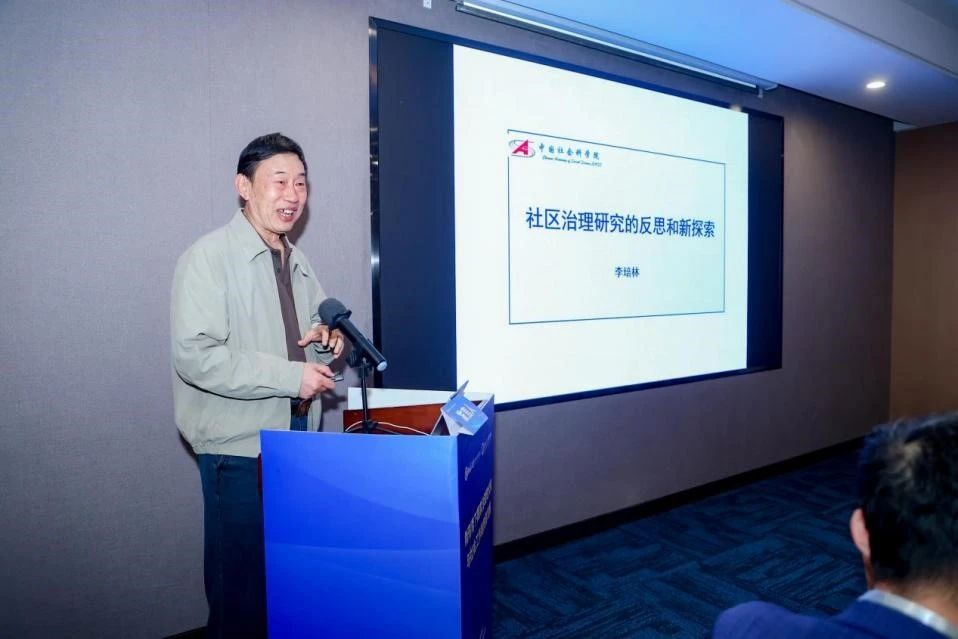
Mr. Li Peilin
Li Peilin analyzed the new trends in grassroots community governance through textual analysis of documents issued by the central government, raising the question of whether community life is becoming stronger or weaker. He reflected on the effective mechanisms of community governance, the metaphor of "a small horse pulling a big cart," the applicability of the analytical framework of "thousands of threads above, one needle below" to understand grassroots social changes, and the new orientations and trends in community governance policies, such as strengthening incentive mechanisms for grassroots governance work, empowering grassroots authorities, and rectifying illegal behaviors of grassroots cadres.
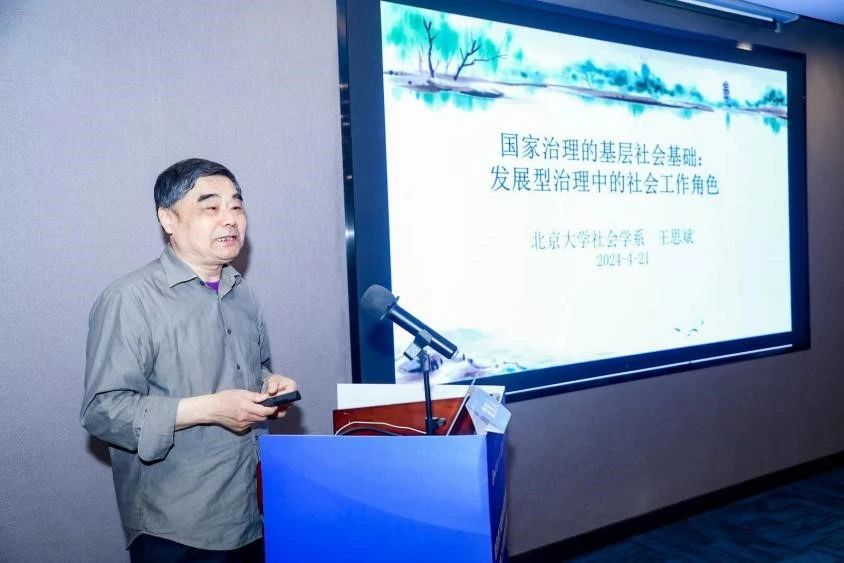
Mr. Wang Sibin
Wang Sibin discussed grassroots social governance within the context of national governance. He proposed that developmental governance is a fundamental requirement for constructing a new pattern in China and that social work's participation in grassroots social governance can focus on social services, community public services and facilities, and the mediation of conflicts and maintenance of social order. He highlighted the significant role of social work in developmental governance and pointed out that since the establishment of the Party's social work department and its system, social work has expanded functions such as institutional reform, building the Party's social work system, and strengthening connections with the masses. Wang emphasized that developmental governance integrates development concepts with governance and services, forming the social foundation for effective social governance and meeting the basic requirements for constructing a new pattern in China.
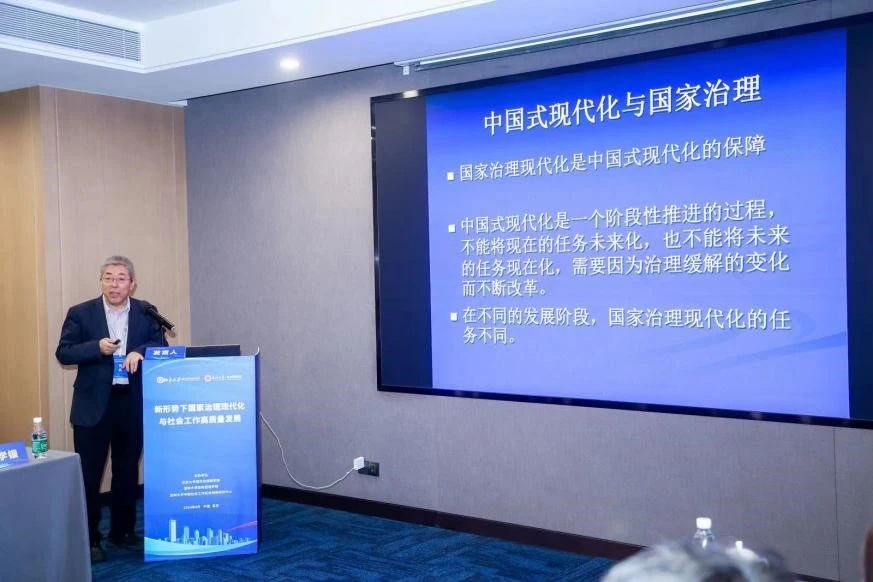
Mr. Zhang Yi
Zhang Yi emphasized the crucial role of the modernization of national governance in Chinese modernization, stating that it is a guarantee of Chinese-style modernization. He noted that the tasks of national governance modernization vary at different developmental stages. The current reform focus is on continuing to reform key institutions, where the development of productive forces ultimately drives continuous reform of the superstructure. Zhang outlined the main tasks of current reforms, including fostering cooperation and synergy between departments, improving the quality of the cadre team, studying new risks in the intelligent society, strengthening the construction of the discourse system of the new era, improving the system of self-governance, moral governance, and rule of law, and integrating the "Five-in-One" construction.
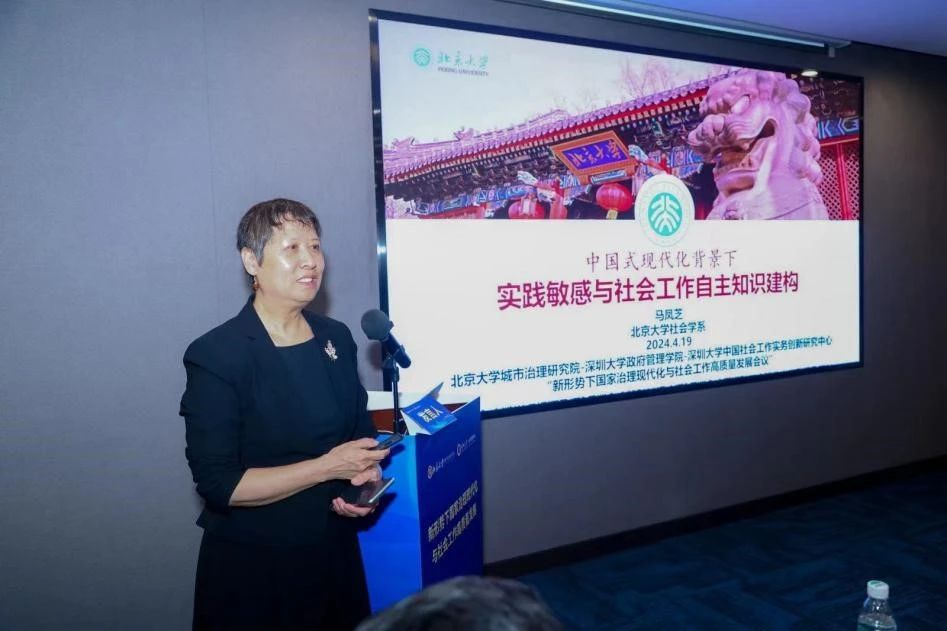
Ms. Ma Fengzhi
Ma Fengzhi presented on "Practical Sensitivity and the Autonomous Knowledge Construction of Social Work in the Context of Chinese Modernization." She argued that maintaining sensitivity to practice, understanding the mechanisms within practice, and distilling practical experiences into "practical knowledge" are necessary for the production of social work knowledge. Ma emphasized the need for the academic community to establish methodologies for constructing autonomous knowledge in Chinese social work, develop systematic conceptual frameworks and research paradigms, and create theories and methods that can progressively explain and be applied to Chinese social work.
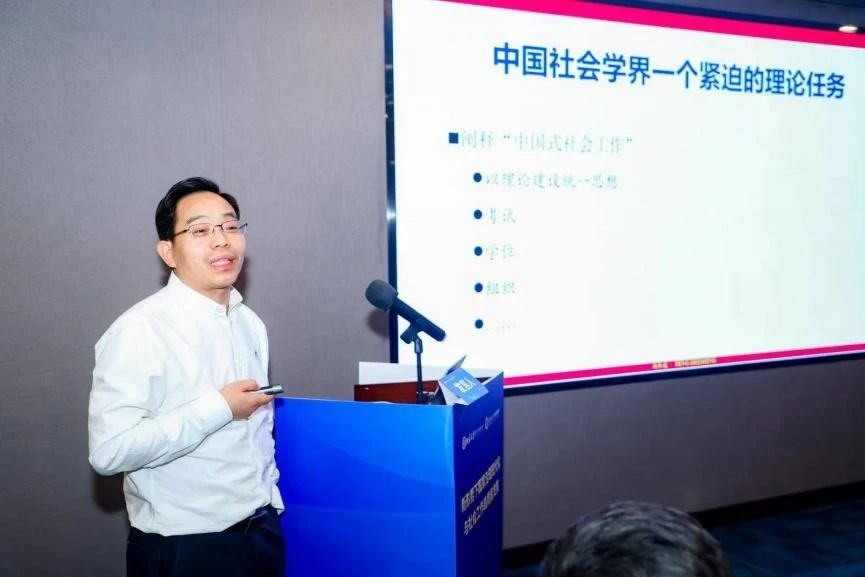
Mr. Feng Shizheng
Feng Shizheng shared insights on "The Characteristics, Tasks, and Goals of Chinese-style Social Work." He analyzed the significance of establishing the Social Work Department from the perspective of the "Party and State Institutional Reform Plan," highlighting its role in guiding and building professional social work talent. Feng pointed out the urgent need to construct a theoretical framework for "Chinese-style social work," emphasizing that theoretical construction should unify thinking and improve systems such as examinations and degrees. He elaborated that the essence of "Chinese-style social work" includes maintaining social stability, fostering social vitality, and promoting social development. Its scope encompasses both institutional and non-institutional fields, advocating for both the resolution and mitigation of conflicts. Feng also discussed the paradox of transformation in Chinese-style social work, emphasizing the need to address the "middle-income trap" as a unique transformation challenge.
(III) Second Keynote Session
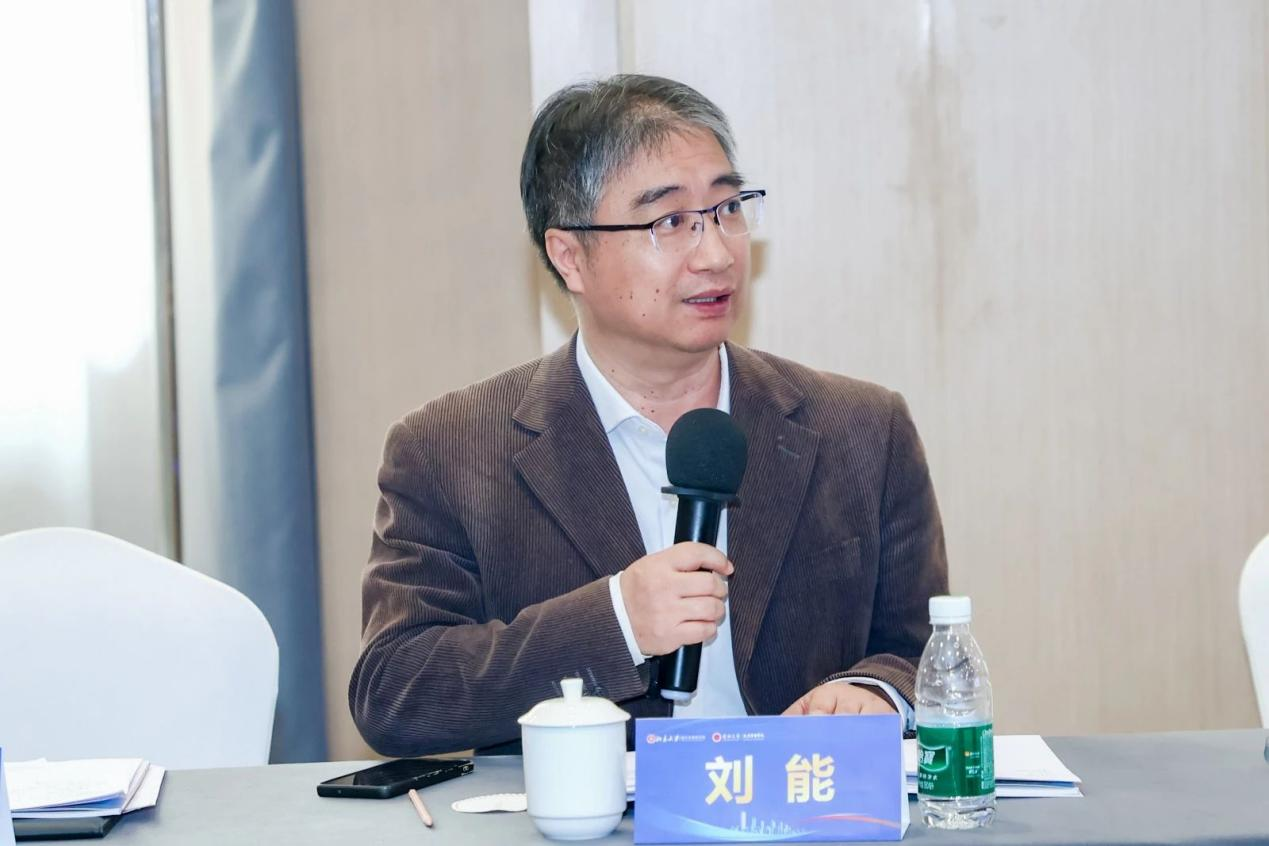
Professor Liu Neng
The second keynote session was hosted by Professor Liu Neng, Deputy Director of the Department of Sociology at Peking University. The speakers included Guan Xinping, President of the China Disability Development Research Association, Vice President of the China Social Work Society, Vice President of the China Social Security Society, and Professor at the School of Sociology at Nankai University; Wang Jiexiu, President of the China Social Governance Research Association and Dean of the Institute of Social Policy at Zhejiang Gongshang University; Wang Tianfu, Vice President of the Chinese Sociological Association and Dean of the School of Social Sciences at Tsinghua University; and Li Yingsheng, Vice President of the China Social Work Society and Professor at the School of Sociology and Population Studies at Renmin University of China.
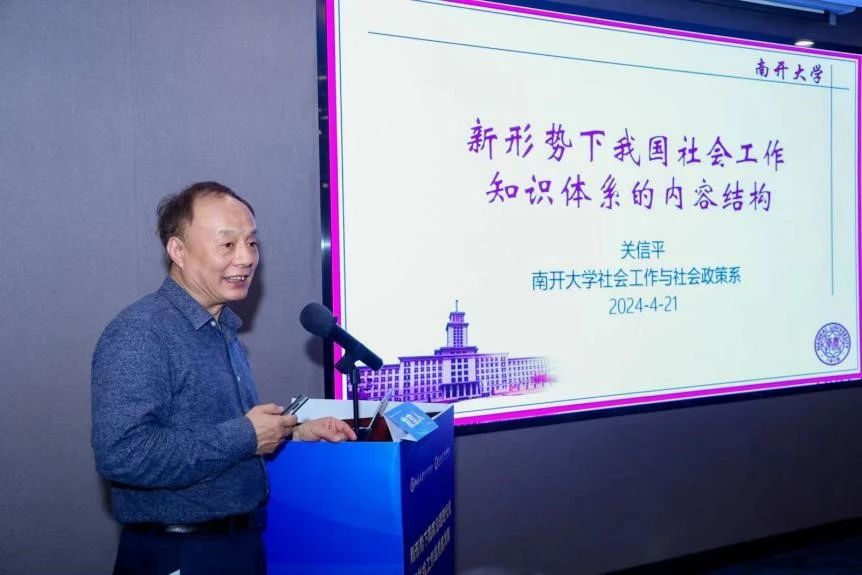
Professor Guan Xinping
Guan Xinping analyzed the development of China's social work knowledge system before and after the reform and opening-up, stating that the existing system includes foundational theories and methods, practical fields, and basic sciences. He proposed new requirements for the development of social work knowledge in the new context, advocating for the enhancement of social policy quality and the expansion of foundational social work knowledge. Guan emphasized advancing the production of social work knowledge through six aspects: deeply exploring traditions, extensively summarizing domestic practices, continuing international exchanges in social work knowledge, strengthening the construction of an autonomous professional discourse system, expanding the content of social work knowledge, and broadening the scope of knowledge in traditional social work fields.

Professor Wang Jiexiu
Wang Jiexiu shared insights on "The Development and Lessons of China's Community Governance." He argued that community governance in China needs to evolve with the times, shaped by different social contexts from the founding of New China to the reform and opening-up era, and to the present. He highlighted the dual positioning of communities as both social living communities and basic governance units, emphasizing that community governance should achieve a balance of vitality and order, and integrate governance and service. Wang concluded that the high-quality development and professionalization of community governance are supported by social work, with social workers playing an indispensable role in community services.
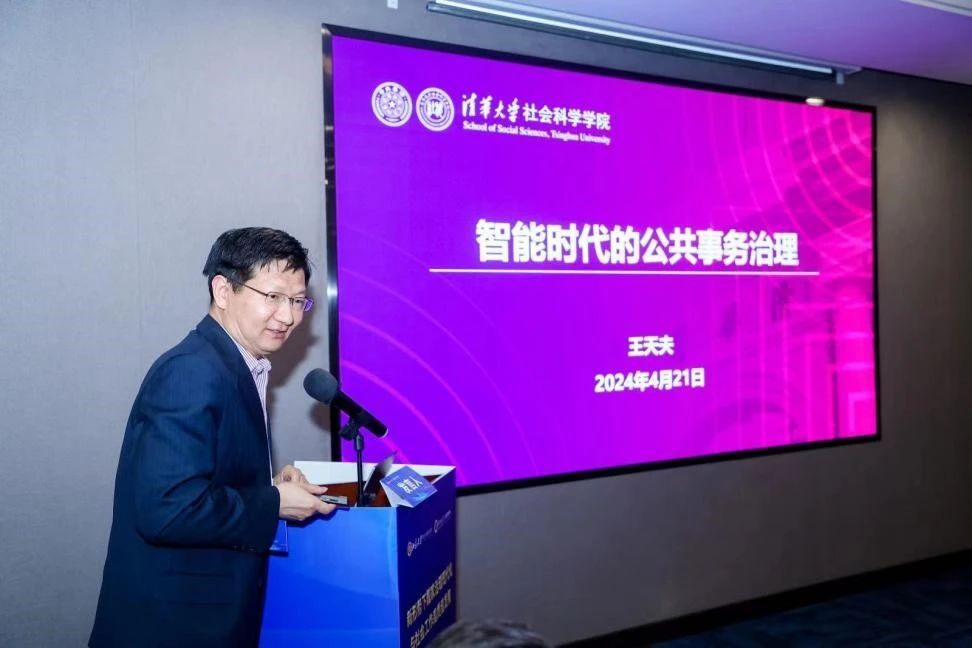
Professor Wang Tianfu
Wang Tianfu presented on "Public Affairs Governance in the Intelligent Era," emphasizing that the digitalization of information liberates social connections from physical constraints, providing a foundational basis for future decision-making. He analyzed the process of artificial intelligence (AI) involvement in public affairs governance, noting its dual nature. On the positive side, AI enhances the dissemination of public affairs information, makes it easier for the public to access accurate information, and improves the specificity and efficiency of public policies. On the negative side, the complexity of AI algorithms can make them difficult for the public to understand and poses certain moral and ethical risks.
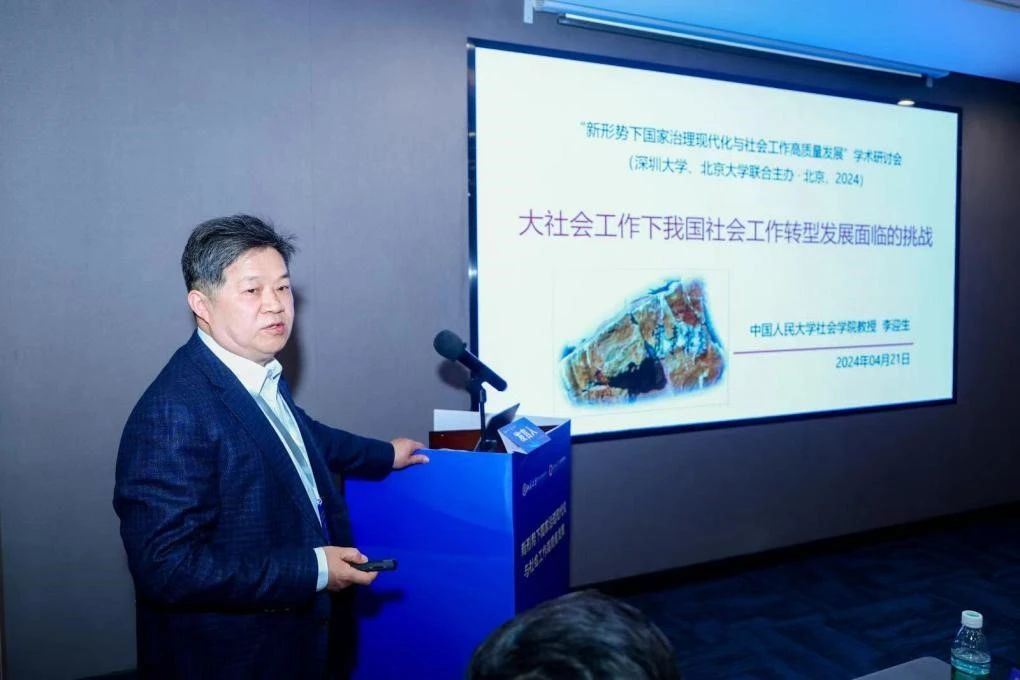
Professor Li Yingsheng
Li Yingsheng discussed the transformation trends of social work in China under the concept of "Great Social Work." He highlighted several key shifts: the expansion of social work targets from vulnerable groups to the entire population; the shift from localized social governance to comprehensive social governance; the evolution of social work functions towards welfare services and diverse roles; the transition of social work's status from a secondary to a mainstream discipline; and the change from single-subject to multi-collaborative approaches in social work. Li also pointed out the challenges faced by social work in China during this transformation, including issues of professionalism, professional capabilities, project workforce development, management coordination mechanisms, internationalization, and practical application.
II. Four Parallel Forums
(I) First Parallel Forum
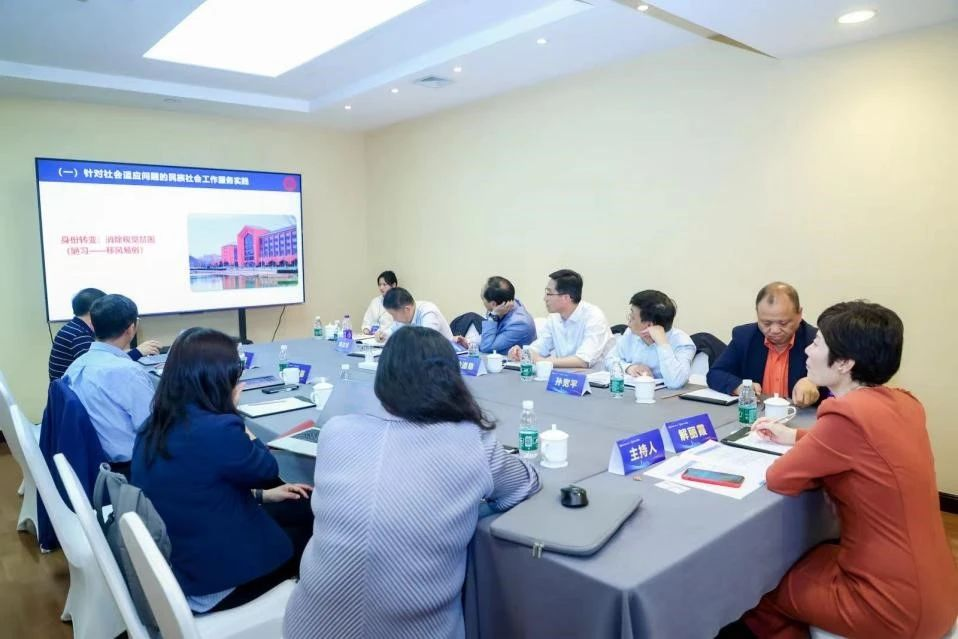
Parallel Forum 1-1
In the afternoon, four parallel forums were held. The first forum was chaired by Professor Xie Lixia, Director of the Social Work Research Center at South China University of Technology. Keynote speakers included Professor Zhuang Yong, Vice President of the China Social Work Education Association and Professor at the School of Public Administration at Guizhou University; Zou Xueyin, Secretary-General of the China Social Work Society; Professor Chen Youhua from the School of Sociology at Nanjing University; and Professor Xu Daowen, Vice President of the China Social Work Society and Director of the China Social Work Practice Innovation Research Center at Shenzhen University.
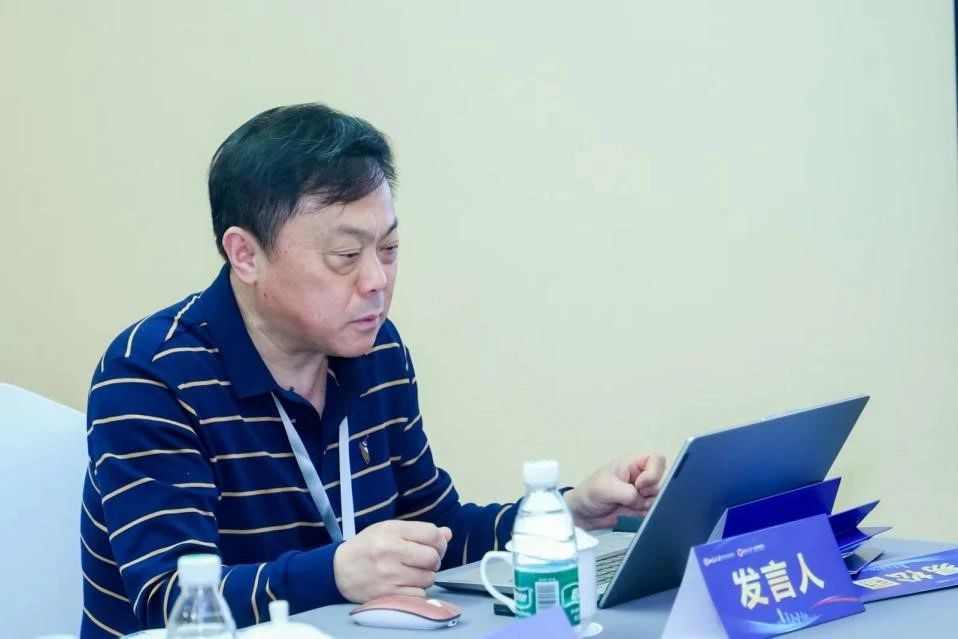
Professor Zhuang Yong
Zhuang Yong's presentation was titled "Practical Exploration of Ethnic Social Work in Relocated Poverty Alleviation Communities." He emphasized the importance of training social workers to use theories such as cultural poverty, cultural sensitivity, and cultural competence to identify and understand issues. In actual ethnic social work services, abstract issues must be made concrete and actionable. He stressed that in the practice of relocated communities, social adaptation issues should be the focus, with support provided in employment or industry. He suggested that cultural construction could cultivate talents familiar with ethnic minority cultures and local professional social workers, improving retention rates of social work professionals in ethnic minority areas.
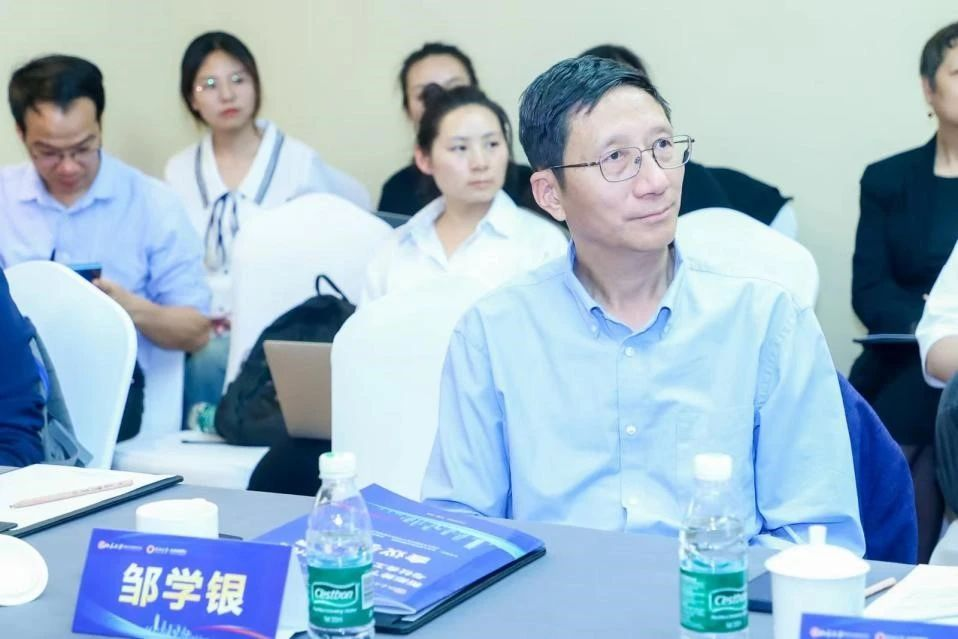
Professor Zou Xueyin
Zou Xueyin proposed that promoting the high-quality development of the social work talent team in the new pattern requires a strategy of "establishing before breaking." Philosophically, "establishing" refers to creating new mechanisms, technologies, and industries, while "breaking" refers to abandoning outdated mechanisms, technologies, and industries. Practically, "establishing" means setting development positions, mechanisms, and characteristics, while "breaking" means achieving breakthroughs in key areas to drive overall advancement. Under the leadership of the Central Social Work Department, the development of the social work talent team will achieve broader, deeper, and higher-quality development.
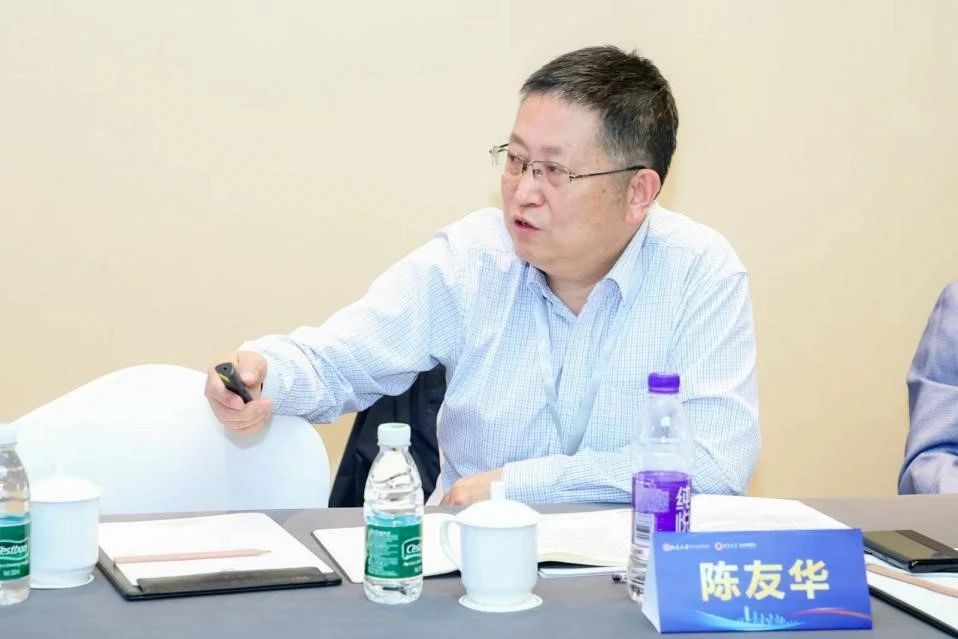
Professor Chen Youhua
Chen Youhua shared insights on "The Real Problems and Path Choices Facing the Development of Social Work Discipline." He noted that the discipline of social work in China has developed over a century, forming an interdisciplinary system involving sociology, education, psychology, and public administration. Despite community workers' related funding being included in the local government’s annual budget, issues such as low employment levels for social work graduates, the marginal status of the discipline, the need for stronger professional practice, low professional value, and weak faculty strength remain. Therefore, the development of the social work discipline requires balancing the construction of the academic system and disciplinary exchange while adhering to self-regulated development. He reflected on the establishment of professional doctorates in social work, the reconstruction of national and social relations, and the restructuring of Party-government relations.
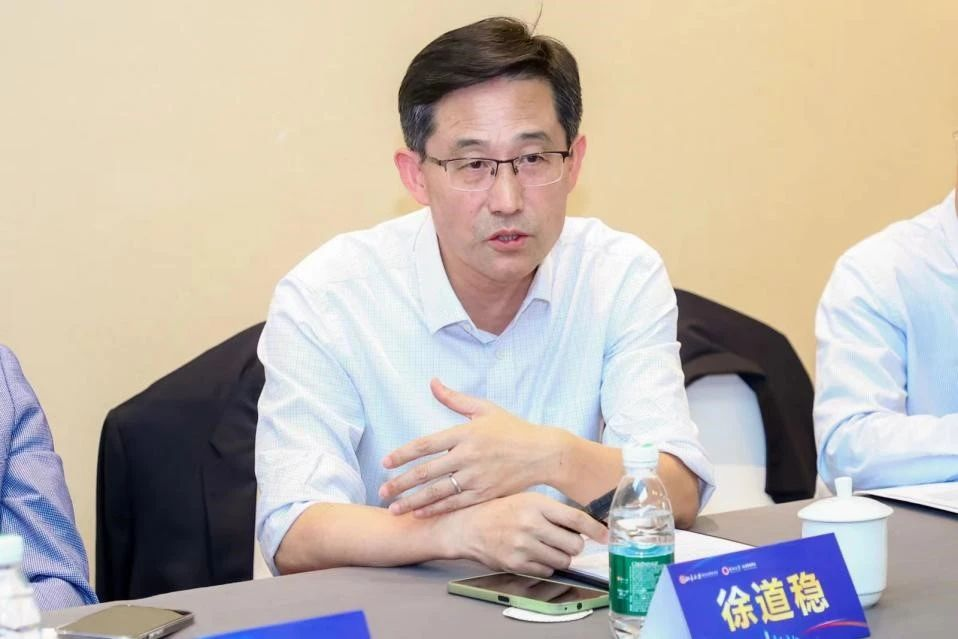
Professor Xu Daowen
Xu Daowen discussed "The Situation and Tasks of High-Quality Development of the Social Work Talent Team," focusing on new circumstances, challenges faced by the social work talent team, and basic tasks under the new conditions. He identified the "new" as the new era, new development stage, new journey, and new measures, indicating significant changes in the macro environment of social work development. Xu outlined challenges such as redefining the role and function of social workers, identifying who social workers are, addressing the uneven development of the talent team, improving social workers' salaries, enhancing the professional status of social work, and increasing the effectiveness of social work services. He concluded that the basic tasks under the new conditions are to construct a social work development system with Chinese characteristics and promote the legalization of social work.
(II) Second Parallel Forum
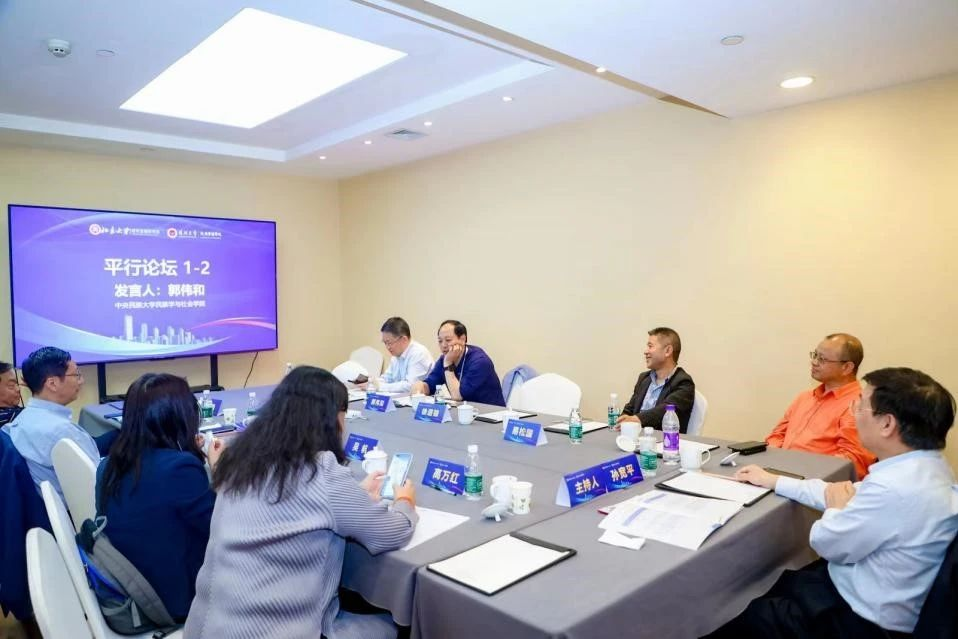
Parallel Forum 1-2
The second parallel forum was chaired by Researcher Sun Kuanping, Vice Director of the Institute of Urban Governance at Peking University. Keynote speakers included Professor Gao Wanhong, Director of the Department of Social Work at the School of Ethnology and Sociology at Yunnan University; Professor Wu Fan from the School of Sociology at Nankai University; Professor Guo Weihe from the School of Ethnology and Sociology at Minzu University of China; and Professor Yi Songguo, Director of the Social Governance and Innovation Research Center at Shenzhen University.

Professor Gao Wanhong
Gao Wanhong's speech was titled "Family Empowerment: Action Research on Promoting Social Inclusion of Rural Individuals with Mental Disorders." She discussed the background of her research, the practice of social integration projects, and key areas of social integration. Gao pointed out that there are significant supply-demand contradictions in rural mental health services, with patients' families under substantial pressure. Individuals with mental disorders face multidimensional social exclusion, including economic, public service, political, and social relationship aspects. She argued that addressing behavioral management, livelihood development, and social relationships are critical to helping these individuals integrate into society. By doing so, they can transform from being isolated in community activities to active participants, thus contributing to public advocacy for community mental health.
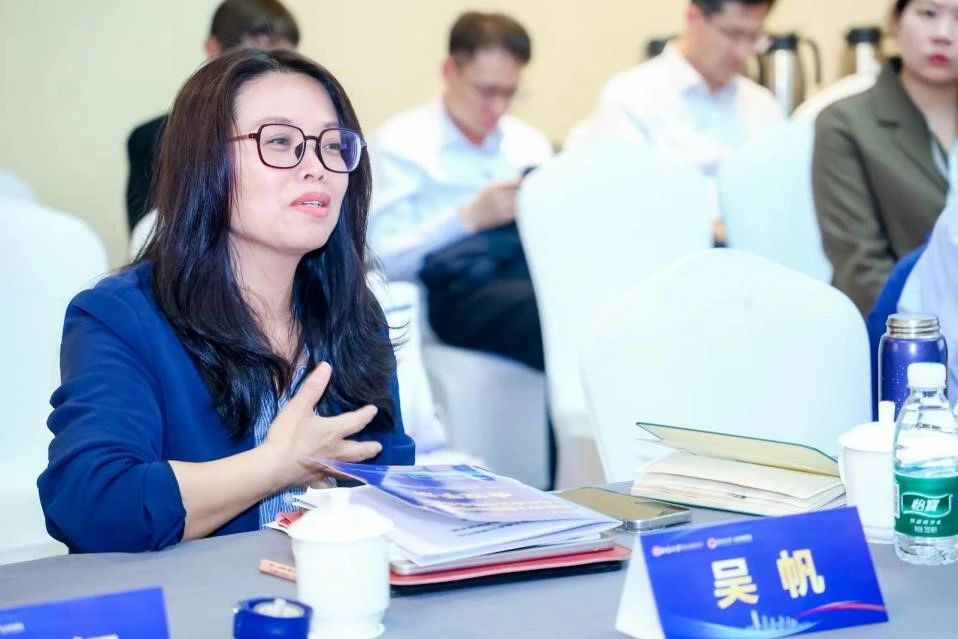
Professor Wu Fan
Wu Fan's presentation, "Innovative Strategies and Practical Exploration for Social Work Education in the Context of Governance Modernization," emphasized the need for innovation in social work education to meet new requirements for social workers' knowledge, skills, and professional attitudes. She argued that in the context of governance modernization, social workers should develop diverse professional knowledge and skills, problem-solving abilities, innovative thinking, emotional understanding and communication, cultural sensitivity and diversity, continuous learning, and self-renewal. Using the course reform of "Introduction to Social Policy" at Nankai University as an example, Wu highlighted the importance of integrating theory and practice in social work education to enhance students' professional competence and ability to address real-world issues, fostering cultural competence, cultural humility, and professional identity.

Professor Guo Weihe
Guo Weihe's keynote, "From Mass Work to Social Work: The Internal Trend of Development of Chinese-style Social Work," addressed whether professional social work has a specific space for survival and recognition in China. He emphasized the importance of learning from the historical tradition of the Chinese Communist Party's mass work, identifying contemporary strategies that align with professional community work. Guo highlighted the need to distinguish between professional social workers capable of mobilizing and educating the masses and community workers in residents' committees, ensuring that each level and role of professional social workers can fully utilize their abilities.
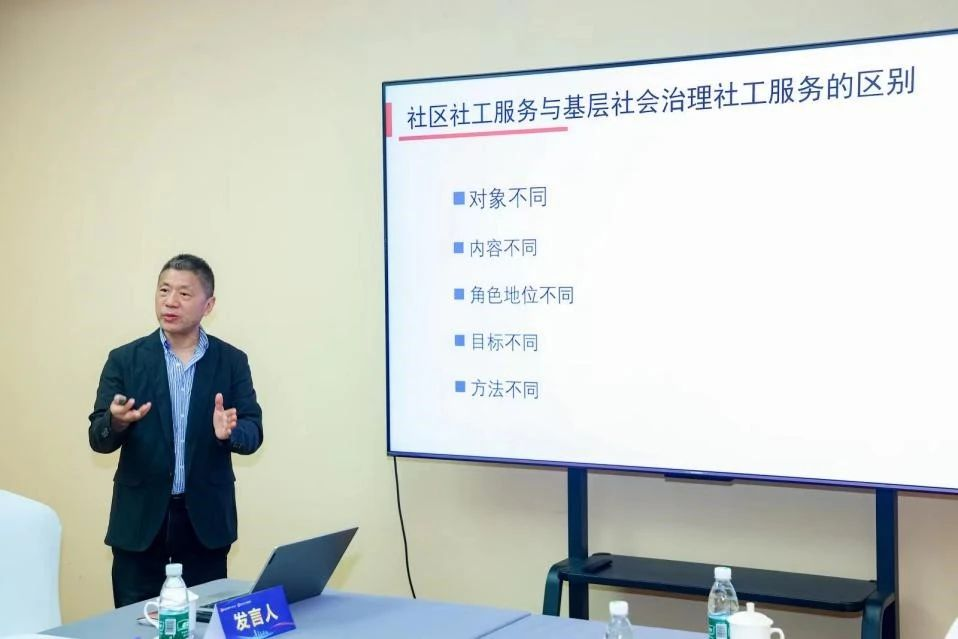
Professor Yi Songguo
Yi Songguo's presentation, "From Community Services to Grassroots Social Governance: Challenges and Strategies for Social Work," discussed the differences between community social work services and grassroots social governance services regarding target groups, roles, content, goals, and methods. He highlighted the challenges of professionalization, capacity, autonomy, lack of authority, and ethical dilemmas in social work's involvement in grassroots social governance. Yi emphasized the need to enhance social workers' training and professional value, and the importance of establishing a theoretical system and strategic framework suitable for the professional development of social work in China.
(III) Third Parallel Forum
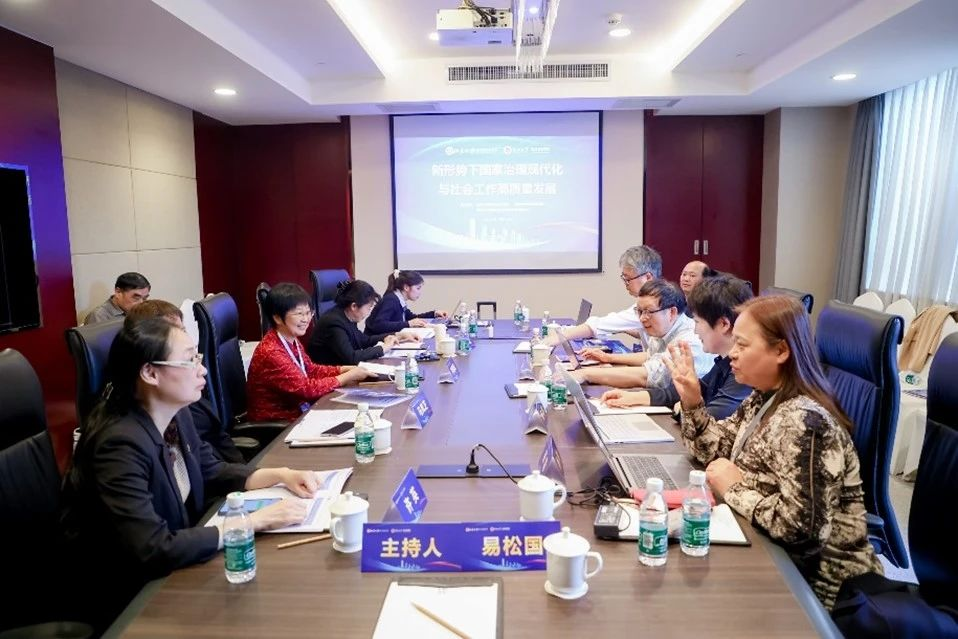
Parallel Forum 2-1
The third parallel forum was chaired by Professor Yi Songguo, Director of the Social Governance and Innovation Research Center at Shenzhen University. Keynote speakers included Professor Zhao Yihong, Vice President of the China Social Work Society and Executive Dean of the School of Sociology and Ethnology at the Chinese Academy of Social Sciences University; Professor Li Xiaofeng, President of the Guangdong Social Work Education and Practice Association and Director of the Care Index Research Center and professor of the School of Government at Shenzhen University; Professor Fan Minglin from the School of Sociology at Shanghai University; and Professor Huang Chenxi, Vice Dean of the School of Social Development at East China Normal University. They each presented on topics including "The Contemporary Value of Modernizing Social Governance Capabilities," "The 'Social Worker Village' in Longhua District of Shenzhen," "The Chinese Logic in Social Work Theory," and "The Impact of the New Administrative System on Social Work in China."
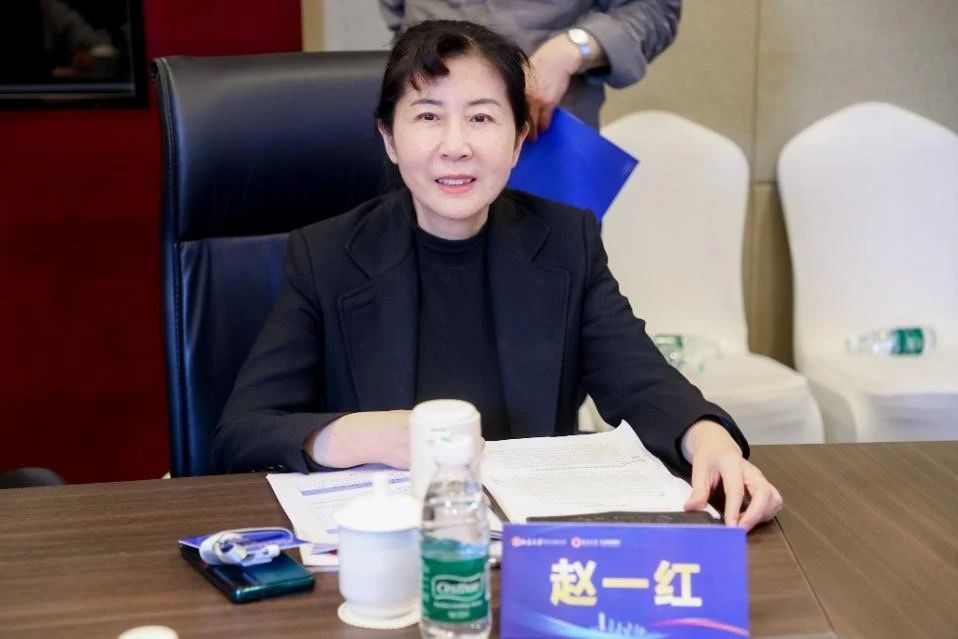
Professor Zhao Yihong
Zhao Yihong emphasized the need to improve social governance capabilities by enhancing mass work capabilities, risk prevention capabilities, and public opinion guidance capabilities. She discussed the transition from "social management" to "social governance," highlighting the modernization of social governance capabilities as a contemporary issue. She addressed the structural shift from "unified governance" to "multi-stakeholder governance" under the leadership of the Party and the combination of legal governance with grassroots autonomy. Zhao underscored that ensuring and improving people's livelihoods is inherent to the modernization of social governance and the foundation for promoting high-quality development in social governance.
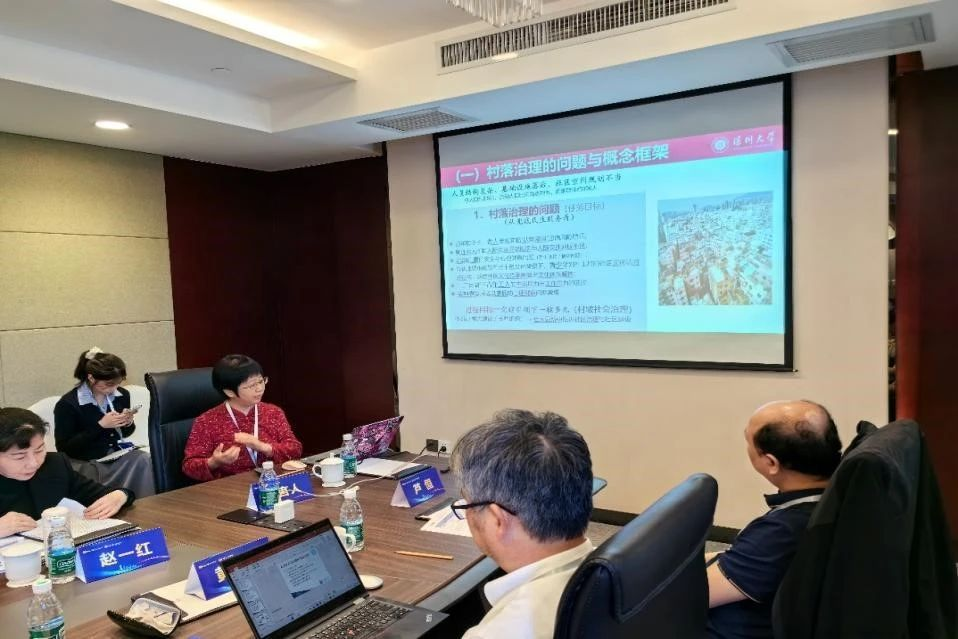
Professor Li Xiaofeng
Li Xiaofeng used the "Social Worker Village" in Longhua District, Shenzhen, as an example to share the experience and model of social work participation in village governance. Using theoretical frameworks of capital accumulation and reproduction from the perspective of space creation, she analyzed urban village social issues through "physical space," "psychological and social space," and "governance space." Li summarized the "1+1+2" model of village governance, which includes "one core: Party leadership," "one governance subject: service-oriented governance by social work," and "two governance subjects: participatory governance by social workers and social organizations." She pointed out current issues in this model, such as insufficient linkage of social philanthropic resources and abstract ideal governance goals.
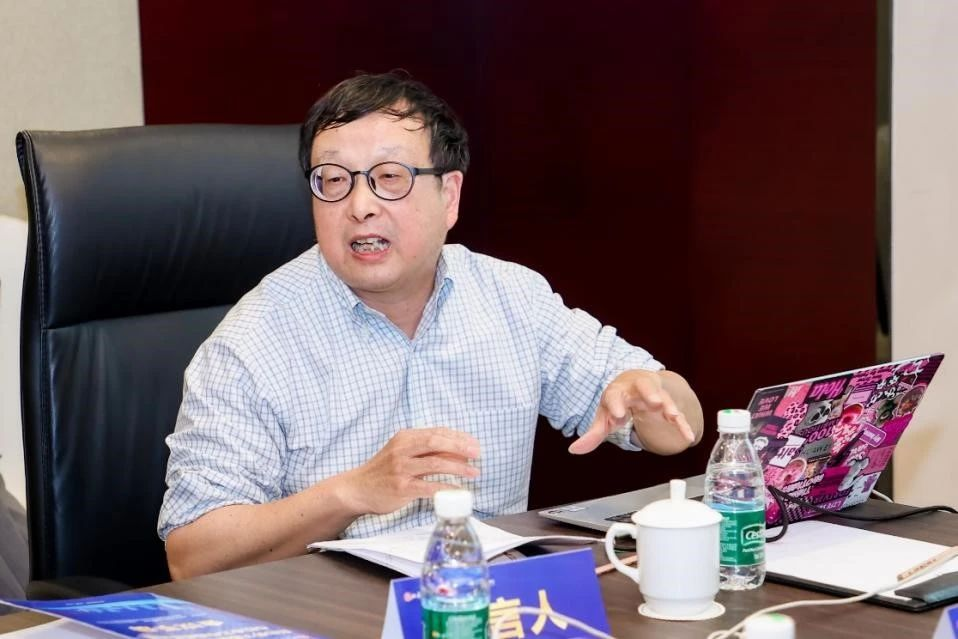
Professor Fan Minglin
Fan Minglin pointed out that Chinese social work theory is currently in a state of "national attention and continuous promotion," but with "practice leading and theory lagging." He emphasized that research on social work theory should be approached from six dimensions: historical and cultural, grassroots social, administrative system, change and development, contemporary Western social work theory, and contemporary Chinese discourse. He argued for the need to develop mid-level theories to explain social changes and explore the rationale for social policies and professional services. Additionally, he advocated for the creation of micro-level operational and practical theories to guide professional services in local contexts.
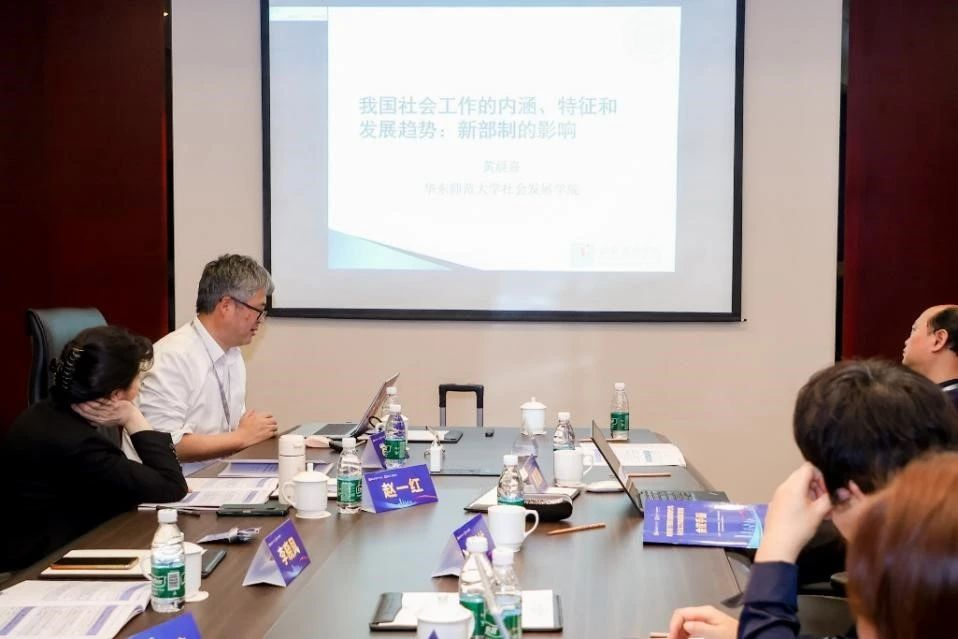
Professor Huang Chenxi
Huang Chenxi introduced his talk with two questions related to the new institutional framework: "Is the social work of the Social Work Department under the Central Committee consistent with our understanding of social work?" and "What impact might the establishment of the Central Social Work Department have on the development of social work?" He analyzed three interpretations of "social work" in China—social work in daily life, professional social work cultivated through higher education, and administrative social work as defined in government documents. Huang highlighted new requirements, trends, and focuses for social work in the era of the new institutional framework. He stressed the importance of Party leadership, collaborative integration, and preventative development, and recommended that the focus of social work should be on Party-building social work, philanthropic social work, and social work related to petition handling.
(IV) Fourth Parallel Forum
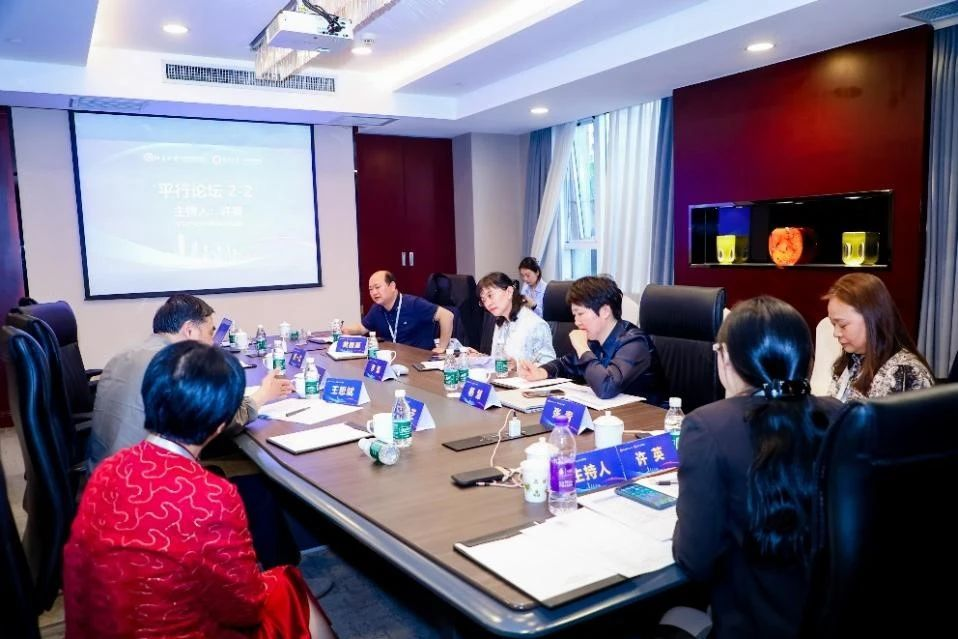
Parallel Forum 2-2
The fourth parallel forum was chaired by Professor Xu Ying from the School of Government at Shenzhen University. Keynote speakers included Professor Lu Heng, Vice Dean of the School of Philosophy and Sociology at Jilin University; Professor Yang Hui from the School of Sociology at Nankai University; Professor Zhang Qing from the School of Sociology at Shenyang Normal University; and Associate Professor Li Juan, Vice Dean of the School of Ethnology and Sociology at Inner Mongolia University. Their presentations were titled "Resilience Logic of Community Governance and Thoughts on Social Work Participation in Governance," "Action Logic of Social Work Empowering Grassroots Governance and High-Quality Development of Community Social Work," "Localization of Social Work Profession and Its Practical Concerns," and "Coupling and Co-construction of Community Building for the Chinese National Community Awareness and Borderland Social Governance," respectively.
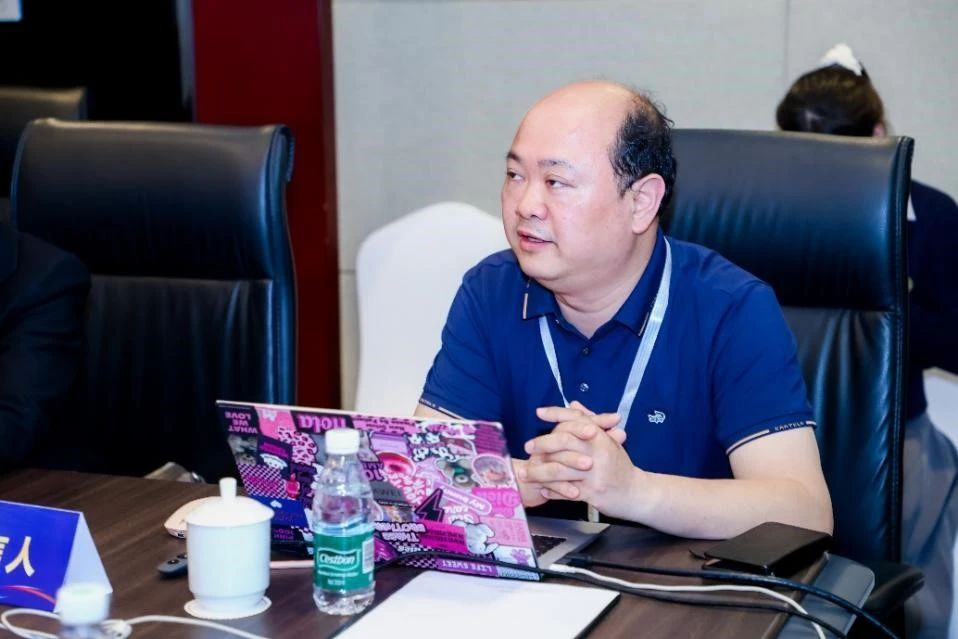
Professor Lu Heng
Lu Heng first defined "resilience" and "resilience governance," sharing his thoughts on community resilience governance and social work's role in it. He emphasized the need to consider the value foundation, main actors, internal structure, and mechanisms of communities in social work's participation in community resilience governance. The value foundation for risk resistance is to uphold people's values; the main actors require social work to provide tailored planning and services for different community types. The internal structure of communities necessitates that social work leverages community organization strengths and cultivates urban and rural community organizations. Dynamic mechanisms for risk resistance involve the dynamic allocation and retraction of resources by social work.
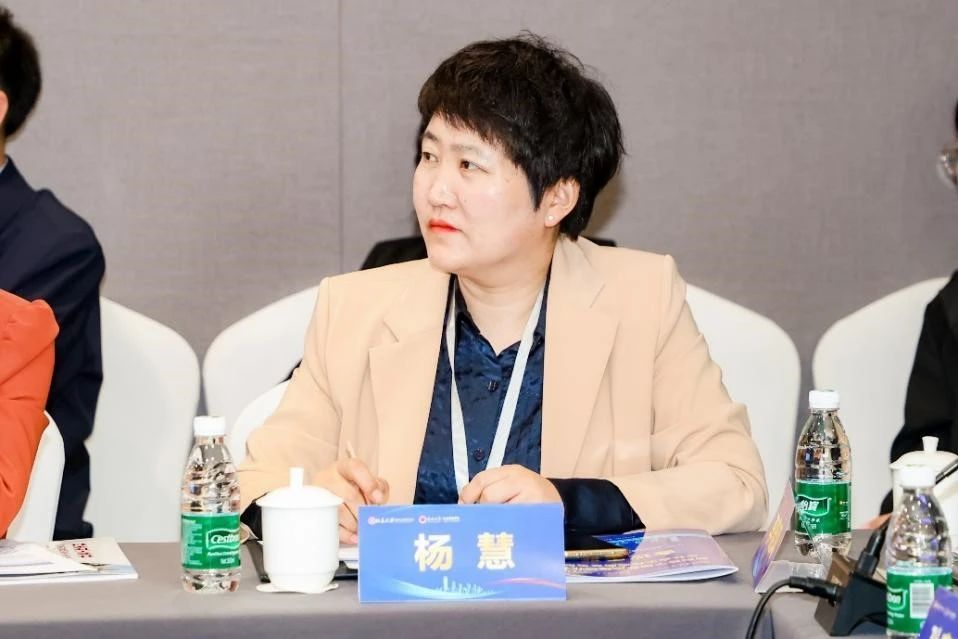
Professor Yang Hui
Yang Hui discussed the background, action logic, and implications for high-quality development of community social work from the perspective of social work empowering grassroots governance. She highlighted that the establishment of the Central Social Work Department is crucial for strengthening the Party's leadership in the social field, advancing social work duties management, consolidating and integrating social work forces, solving existing social governance issues, and reshaping the social governance landscape. Yang called for new explorations in the roles and functions of social work, talent team construction, and knowledge system optimization. She stressed the need for community social work to align with the practical demands of high-quality development, drawing on the characteristics and experiences of grassroots governance actions to rethink linkage mechanisms.
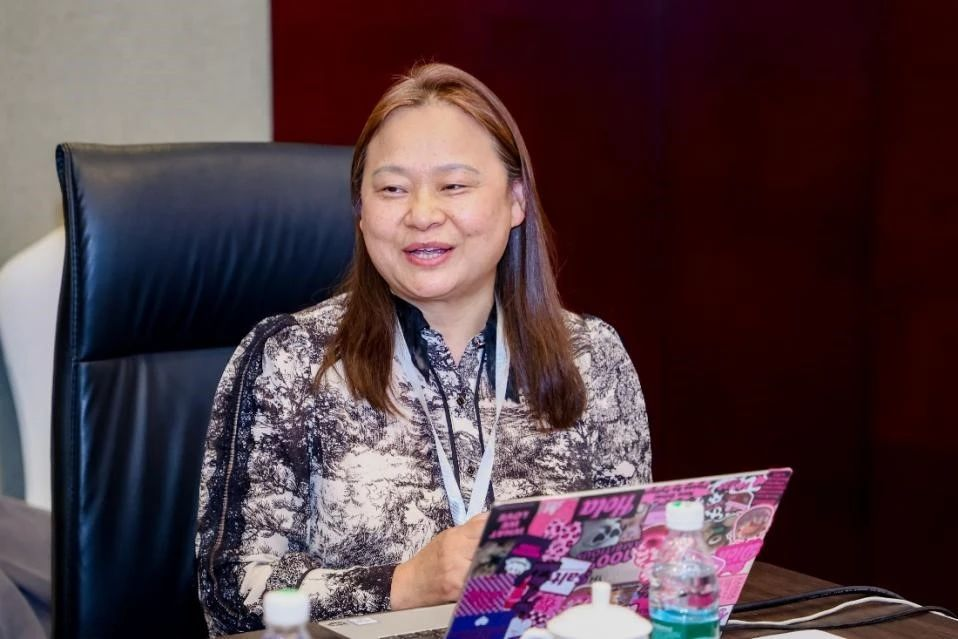
Professor Zhang Qing
Zhang Qing analyzed the contradictions and conflicts in current social work through three case studies from her social work institution. She noted the complex and multifaceted nature of these conflicts, which include tensions between individualism and collectivism, conflicts between public authority and shame culture, and clashes between the Chinese context of integrating emotion, reason, and law with the rigidity of rule of law. Zhang argued that the mission of contemporary social work education is to reconstruct the education system, combining Western professional knowledge with local practice experiences. She advocated for exploring social work cultural principles in the Chinese context, maintaining cultural sensitivity, and incorporating the wisdom found in the Party's mass work methods into social work theories.
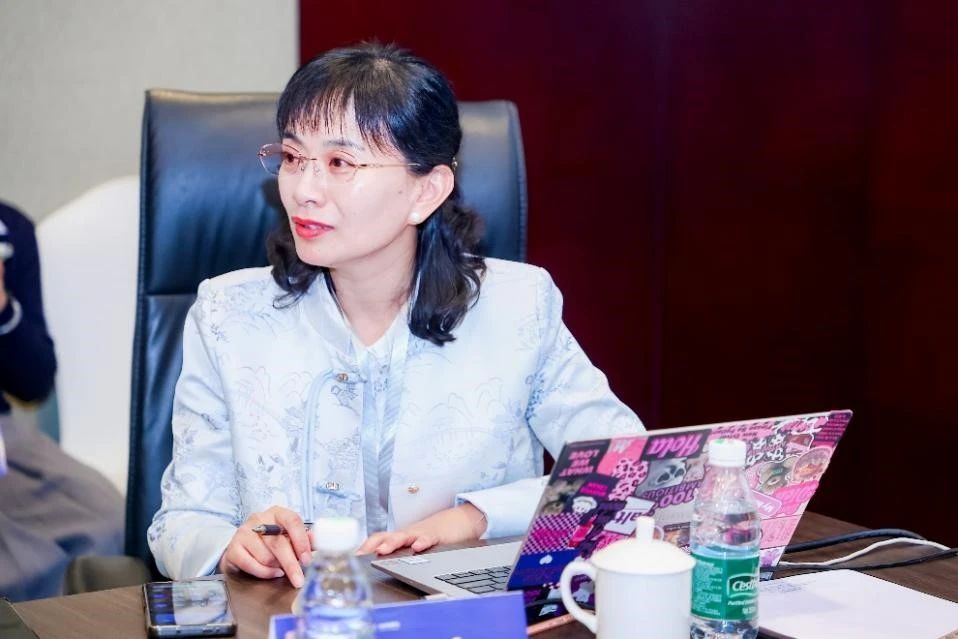
Associate Professor Li Juan
Li Juan emphasized the role of communities in fostering the Chinese national community awareness. She shared a case study on a bilingual learning class for elderly ethnic minorities in a multi-ethnic community (X community), focusing on the concepts of "appreciating each other's beauty," "beauty in harmony," and "harmony in diversity." Li proposed three practical directions: enhancing mutual understanding and recognition among community residents, promoting mutual communication and respect, and encouraging cooperation and integration within the community. She outlined the path to strengthen and cultivate the awareness of the Chinese national community from the perspective of grassroots community governance: enhancing grassroots democratic construction, securing the political foundation; improving the well-being of urban and rural residents, solidifying the interests foundation; deepening community progressive education, nurturing the ideological foundation; building ethnically integrated communities, reinforcing the social foundation; and strengthening cultural leadership capabilities, laying the cultural foundation.
III. Closing Ceremony
The closing ceremony was chaired by Professor Gu Zhijun, Vice Dean of the School of Government at Shenzhen University. Professor Xu Daowen summarized the seminar, expressing gratitude to the participants for their strong support and active engagement. He praised the exchange of new ideas and concepts that emerged from the discussions and looked forward to the high-quality development of the social work profession. Presidents Wang Sibin and Ma Fengzhi both acknowledged the achievements of the social work discipline at Shenzhen University in recent years and encouraged continued efforts to leverage Shenzhen's role as a pioneer. The academic seminar on "Modernization of National Governance and High-Quality Development of Social Work in the New Era" concluded successfully.
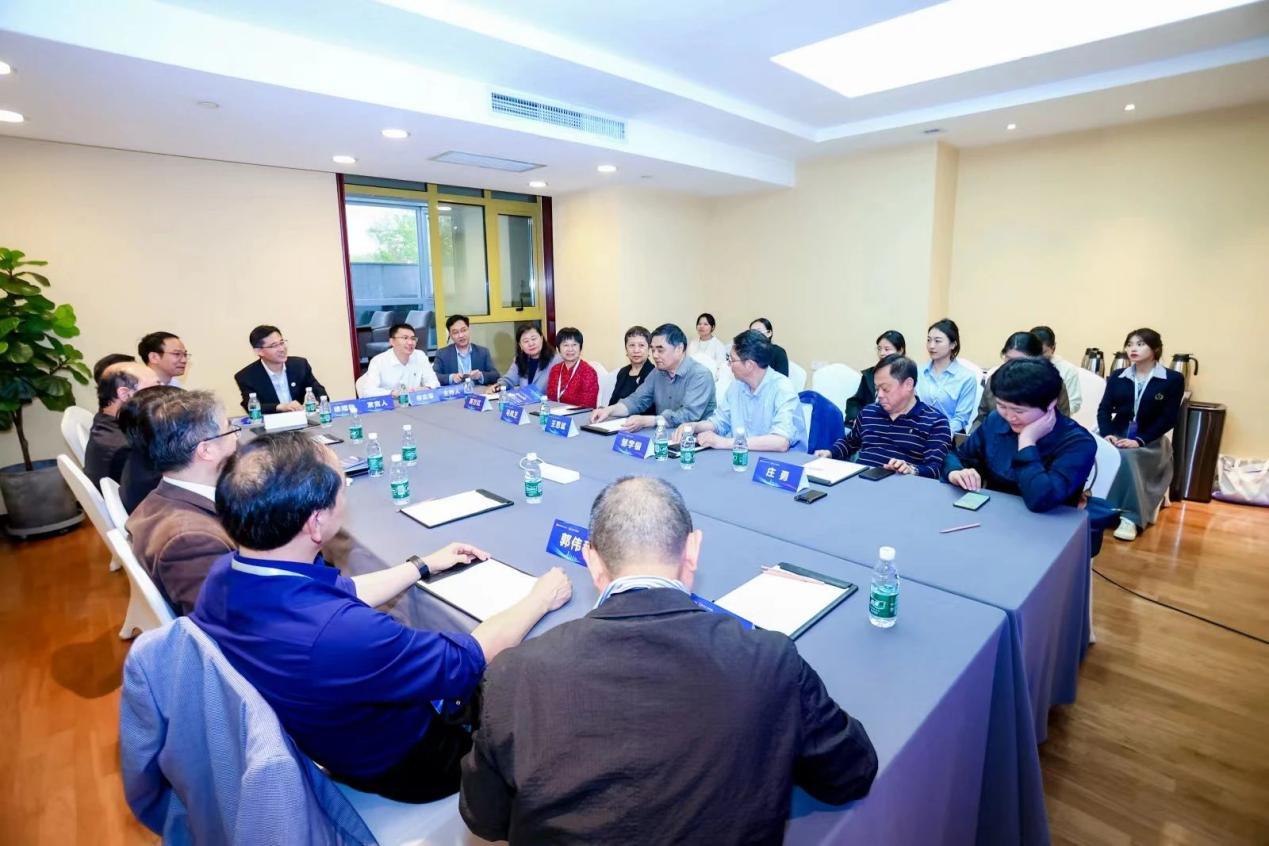
Closing Ceremony
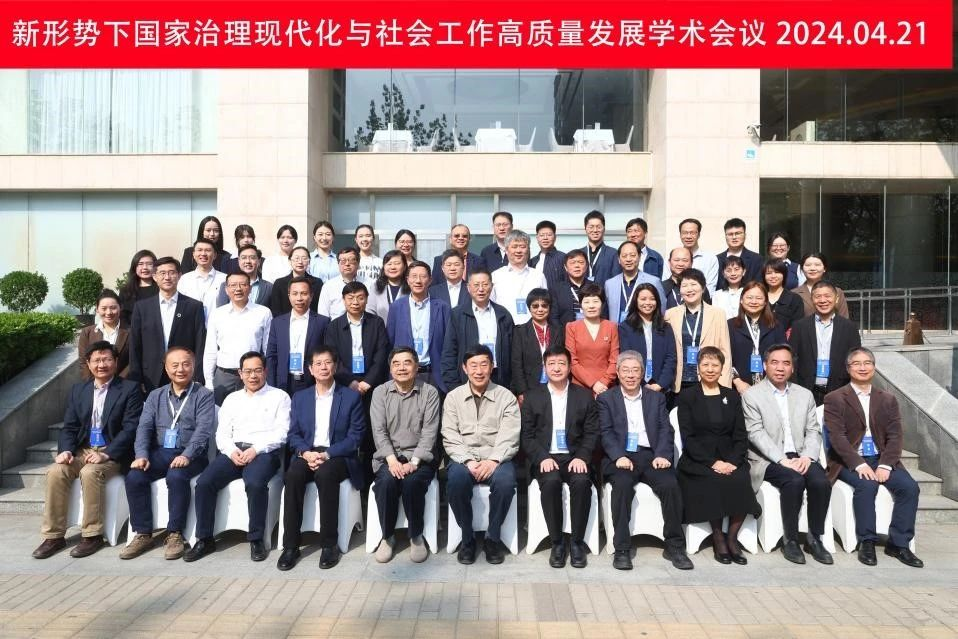
Group Photo after the Seminar
Editor: Xiao Yao
First Reviewer: Ye Shifeng
Second Reviewer: Chi Shangxin
Final Reviewer: Gu Zhijun

